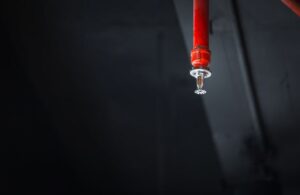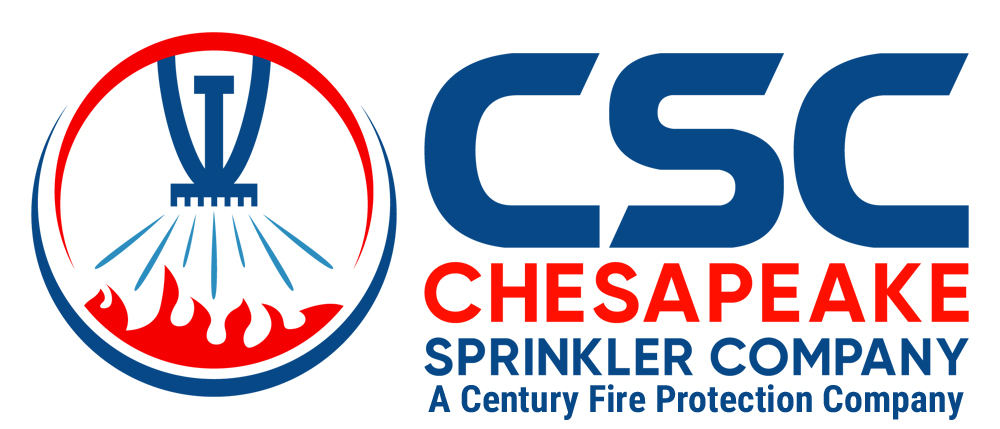
Here is how to prevent corrosion within your sprinklers.
Fire sprinkler systems reduce property damage and help save lives. However, every device comes with its challenges. For example, laptops or computers make life more convenient. People no longer have to handwrite papers, go to the library, or flip through an Encyclopedia to find information. However, laptops and computers can overheat, have a shelf-life, and be prone to viruses if you don’t protect them. Fire sprinklers, like laptops, need the proper protection. One of the biggest problems with fire sprinklers is the pipes. Recently, we explained what you should do if pipes burst, and now we’ll discuss the causes of corrosion in fire sprinklers and how to prevent it.
The Causes of Fire Sprinkler Corrosion
Understanding how fire sprinklers rust and the different types of corrosion can prevent this problem from happening in the first place. The most common cause is oxidation, which occurs when oxygen trapped in the pipes dissolves in the water and reacts with the piping. Microbiologically influenced corrosion (MIC) is a form of erosion caused by microorganisms. MIC happens when bacteria are in a pipe, along with metal, water, nutrients, and oxygen. You should know that oxygen corrosion occurs when oxygen gas and water in the fire sprinkler system react with the metal piping.
Why is it a Problem When Fire Sprinklers Rust?
It causes severe problems in fire sprinkler systems when you let rust go unchecked, which are:
- Leaks
- Pipe obstructions
- Reduced hydraulic performance (the capacity to contain or safely pass flowable substances)
What’s more, is that corrosion causes your fire sprinkler system not to be as effective if a fire occurs. Thus, you’d likely face expensive repair costs, property damage, and disruption to your business. Not to mention that when fire protection equipment does not work properly, it impacts the safety of your occupants.
Preventing Corrosion in Fire Sprinklers
Taking precautions will lengthen the lifespan of your fire sprinkler system. If you’re well-versed in fire safety, there are different fire sprinklers. Dry and wet pipe systems operate differently. Therefore, you’ll have to manage corrosion in unique ways.
Preventing Corrosion in Dry Pipe Systems
Erosion happens in a dry pipe system when water gets in the pipes. It’s hard to keep the piping completely dry in this system. However, nitrogen inerting is one way to reduce corrosion in dry pipe systems. It eliminates all the oxygen within a system and replaces it with nitrogen so corrosion cannot occur.
Preventing Corrosion in Wet Pipe Systems
In wet pipe systems, rust happens when oxygen enters the fire sprinkler system. Having an air venting device installed can help. Wet pipe nitrogen inerting also uses nitrogen to displace oxygen from the piping before the water fills the system.
Preventing MIC Erosion
It’s also best to evaluate the type of water that flows through your piping. Treated water prevents bacteria growth and uses biocides (a substance that filters water and destroys fungi) to treat MIC.
Calling Chesapeake Sprinkler
If your fire sprinkler system has seen better days, you should contact us to determine whether you need a new system installed or only maintenance. Consistent maintenance and testing will prevent a lot of issues. If you need help troubleshooting your fire sprinkler system in real-time, you can also look forward to having our emergency services at your disposal.
Contact Chesapeake Sprinkler Company Today!
Chesapeake Sprinkler Company is a leading fire sprinkler contractor in the region, which is now a 100% employee-owned (ESOP) company. As a full-service fire protection company, we offer design, fabrication, installation, testing, maintenance, and inspection of fire protection systems—everything you need from your fire suppression specialist. For more information, please email or call our Odenton location at 410-674-7041, our Ashburn location at 703-729-5150, or for service/maintenance Chesapeake Protection Services at 410-674-7577. For emergencies, call 800-298-3473 (FIRE). Feel free to keep in touch through Facebook, Twitter, or LinkedIn!
